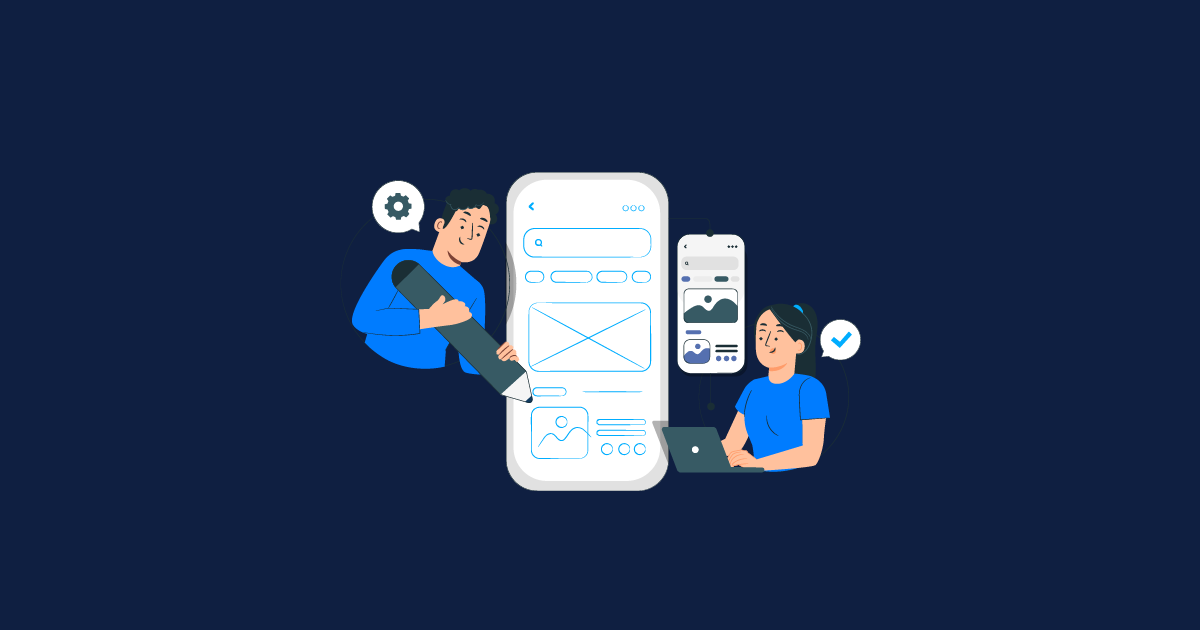The popularity of Fintech mobile apps is on the rise due to the growing reliance of people on smartphones for financial transactions. However, with the rise of Fintech apps comes the need for thorough Fintech mobile app Testing to ensure the security and reliability of these apps for customers.
Quality Assurance (QA) increases the chances of success for Fintech apps by correcting errors and bugs before millions of users start using the app and thus giving users a seamless experience.
In this post, we will understand how important is Testing in Fintech apps and how to overcome challenges for a seamless user experience.
How Important Is Testing in Fintech Apps?
Fintech app Testing for mobile devices is highly important. Fintech applications deal with sensitive financial data and transactions, making it crucial to ensure their reliability, security, and accuracy. Here are some reasons why Testing is essential in Fintech apps:
Reliability and Stability: Fintech apps should function reliably without crashes, errors, or unexpected behaviors. Thorough Testing helps identify and fix any issues, ensuring the app works smoothly for users.
Security: Fintech apps handle sensitive user information, such as bank account details and personal data. Robust Testing helps identify vulnerabilities and weaknesses in the system, allowing developers to address potential security risks and protect user data.
Compliance: Fintech apps are subject to various regulatory and compliance requirements, such as data privacy laws (e.g., GDPR) and financial regulations (e.g., KYC, AML). Testing helps ensure that the app adheres to these standards and regulations.
Financial accuracy: Fintech apps often involve financial transactions, such as payments, transfers, or investments. Accurate calculations and proper handling of financial data are crucial. Testing mobile payments in Fintech apps helps verify the correctness of these calculations, reducing the risk of financial errors.
User experience: Fintech apps need to provide a seamless and intuitive user experience. Testing helps identify usability issues, design flaws, or performance bottlenecks that can impact user satisfaction. By conducting user acceptance Testing (UAT), feedback from real users can also be incorporated to enhance the app's usability.
Integration and interoperability: Fintech apps often need to integrate with third-party systems, such as payment gateways, banking APIs, or financial data providers. Testing ensures smooth integration and interoperability between these systems, reducing the likelihood of errors or disruptions.
Challenges in Testing Fintech Apps on Mobile Devices and Best Approaches to Overcome these Challenges
Testing Fintech apps on mobile devices can be challenging due to the complex nature of financial transactions and the need to ensure security, accuracy, and reliability. Here are some common challenges and best approaches to overcome them:
Security Testing: Fintech apps deal with sensitive user data, such as banking details and personal information. Ensuring robust security measures is crucial. Overcome this challenge by:
Conducting rigorous penetration Testing to identify vulnerabilities and potential security loopholes.
Implementing secure coding practices to prevent common security flaws.
Utilizing encryption techniques to protect sensitive data during transmission and storage.
Implementing two-factor authentication (2FA) to enhance user authentication.
Compliance Testing: Fintech apps must adhere to various regulatory standards, such as Payment Card Industry Data Security Standard (PCI DSS) or General Data Protection Regulation (GDPR). Overcome compliance challenges by:
Understanding the relevant regulatory requirements and ensuring the app meets them.
Conducting regular audits to ensure compliance.
Implementing data protection and privacy measures to safeguard user information.
Performance Testing: Fintech apps often handle a large volume of transactions, requiring high performance and scalability. Overcome performance challenges by:
- Conducting load Testing to simulate heavy user traffic and transaction volumes.
- Optimizing database queries and backend processes to improve response times.
- Implementing caching mechanisms to reduce server load.
- Utilizing cloud-based services for scalability and performance monitoring.
Compatibility Testing: Mobile devices come in various screen sizes, operating systems, and hardware configurations. Overcome compatibility challenges by:
- Testing the app on a wide range of devices, including different screen sizes, resolutions, and operating systems.
- Ensuring the app's user interface (UI) and user experience (UX) are consistent across devices.
- Utilizing responsive design principles to adapt the app to different screen sizes.
Network Connectivity Testing: Fintech apps rely on network connectivity to perform transactions. Overcome network challenges by:
- Testing the app under different network conditions (3G, 4G, Wi-Fi) to ensure it functions correctly.
- Handling network interruptions skillfully and providing appropriate error messages.
- Validating the app's behavior when network connectivity is poor or intermittent.
Usability Testing: Fintech apps need to be user-friendly and intuitive. Overcome usability challenges by:
- Conducting user Testing with representative users to identify any usability issues.
- Gathering feedback and incorporating it into app design iterations.
- Ensuring the app's workflows and processes are intuitive and easy to understand.
By addressing these challenges and implementing thorough Testing methodologies, Fintech app developers can ensure their applications are secure, reliable, and user-friendly for a seamless user experience.
Conclusion
It’s crucial to understand that in the Fintech industry, it’s not only about seamless mobile transactions in Fintech apps but establishing user trust with the seamless user experience is important.
Fintech app development and deployment is a big responsibility— it is also an effective way to outsource Testing jobs. With the right QA Testing team, Testing jobs can be done effectively and safely.
Gain confidence in your app and overcome the above challenges with a trustworthy, knowledgeable QA partner!


